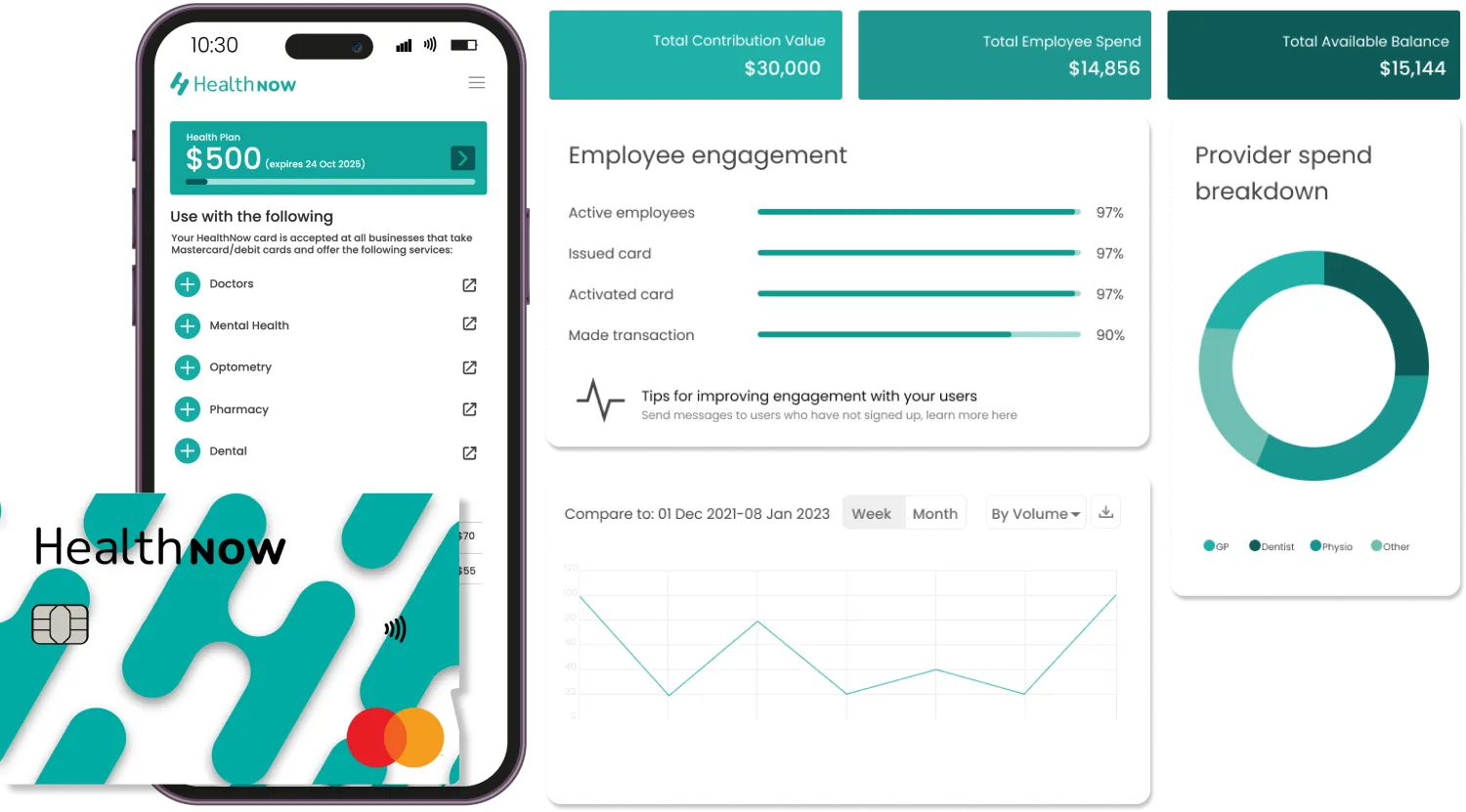If you’ve read our 2023 Employee Market Report, you’ll know that the current job market in Australia and New Zealand is throwing a range of challenges for companies, with job seekers still holding the upper hand as many employers are struggling to hire the right skilled workers to fill their vacancies. It’s the low unemployment rates paired with strong wage growth (and the high cost of living) that have created an environment where job seekers can afford to be selective about taking on a new role – and many are doing just that. Some are even actively exploring new opportunities despite being content in their current role, given the attractive benefits that are now on offer for many roles which could make a significant impact on their day-to-day finances and comfort. Yes, today employees have a lot more to consider than just salary and work opportunities when it comes to a new job, and as a result, many workplaces are offering a more well-rounded and holistic package of benefits that encompass health, well-being, and work-life balance.
What are employees prioritising in today’s job market?
Reviewing employee surveys and initiatives offered by companies across Australasia, here are some key considerations for prospective employees:
Health and well-being prioritisation
In today’s post-pandemic world, health and well-being have taken centre stage. Employees are increasingly aware of the importance of physical and mental health – and are making more time for it. They’re not just looking for basic health benefits; they want more comprehensive packages that cover a wide range of health needs. This includes not only traditional “bottom of the cliff” healthcare (such as seeing a doctor or specialist when you’re already sick) but also mental health support, wellness programs, and preventive care. Employers who offer robust health and well-being initiatives are viewed more favourably by job seekers.
Remote work and flexibility
Remote work and flexible schedules have almost become a necessity, not just a perk. The ability to balance work and personal life is highly valued by job seekers. Many have experienced the benefits of remote work during the pandemic, such as reduced commuting time (and the associated cost) and increased time with family. As such, positions that offer remote work options and flexibility in work hours are considered more attractive. This doesn’t just apply to office jobs; even industries that were traditionally on-site, like healthcare and retail, are finding ways to offer flexible work arrangements. Striking the right balance between remote and on-site work is now key.
Career advancement and professional development
Many job seekers are looking for more than just a job; they want a career. Employers who invest in their employees’ growth and offer clear paths for advancement are more likely to retain and attract talent. This means providing opportunities for upskilling, mentorship programs, and a culture of continuous learning. Beyond the salary on offer, employees want to know that they can grow within their organisation. This is particularly important for the millennial and Gen Z workforce, who value career development opportunities.
Financial stability and competitive compensation
Economic uncertainty, including factors like high interest rates and inflation which have significantly increased the cost of living, have made financial stability a top concern for job seekers. They are looking for employers who offer competitive salaries and benefits that ease their financial burdens in a range of ways. This includes healthcare contributions, stock options, performance bonuses or profit sharing, and financial wellness programs. Employees want to feel financially secure and have the opportunity to save to meet their goals, like purchasing a new home or taking international holidays with families. Employers who recognise these concerns and provide relevant and tangible benefits that are associated with clearly laid out monetary values are more attractive to job seekers.
Positive work culture and company values
A positive work culture and strong company values are increasingly important for job seekers. They’re not just interested in the work itself; they also want to work for an organisation that aligns with their values as this will support them in seeing themselves in the company for a longer term. This includes diversity, equity, and inclusion efforts, as well as a sense of belonging. Employers that foster inclusivity and diversity, and actively promote a positive company culture, are more appealing to potential hires. This is often reflected in the company’s mission, values, and day-to-day operations. Employees want to feel that they’re part of a meaningful and inclusive workplace.
HealthNow Is Meeting Employee Needs
HealthNow is one desired health benefit being offered that is well aligned with the evolving priorities in the current job market. It offers annual fund contributions from employers to employees to be used exclusively for health and medical services. HealthNow payments come without excesses, stand-down periods, or annual cost increases, providing financial security for employees in terms of knowing that their personal health expenses will be notably reduced every year.
HealthNow aligns with employee needs by:
- Empowering employees to take control of their health and well-being. With allocated funds that they can spend in the way that suits not only their health circumstances but also their personal goals, employees can proactively address a variety of health concerns and engage in preventive care. This not only fosters better health overall, but also reduces absenteeism and presenteeism, greatly benefiting companies.
- Removing traditional barriers to healthcare initiatives, like stand-down periods and exclusions for pre-existing conditions. Offering flexibility that allows employees to choose the healthcare providers and services that best meet their current needs, without limitations, not only helps support optimal employee health but translates to notable financial benefits for services that employees may otherwise pay out-of-pocket for, or hesitate to access due to the costs.
- Demonstrating a company’s commitment to the well-being of their employees by choosing to offer HealthNow as a benefit in the first place. This shows that the employer understands that a person’s health requirements can vary greatly and often go beyond the ‘norm’ of typically approved wellness inclusions. Knowing this (and accessing the services as a result) can contribute to a positive work culture, alongside reaping the health benefits, and provide a sense of belonging through feeling cared for. These are all factors that help promote career growth and retention.
You can read more about navigating the current job market as an employer, as well as understanding what you can do to best support your existing and future staff while supporting your hiring and retention processes by reading this.







